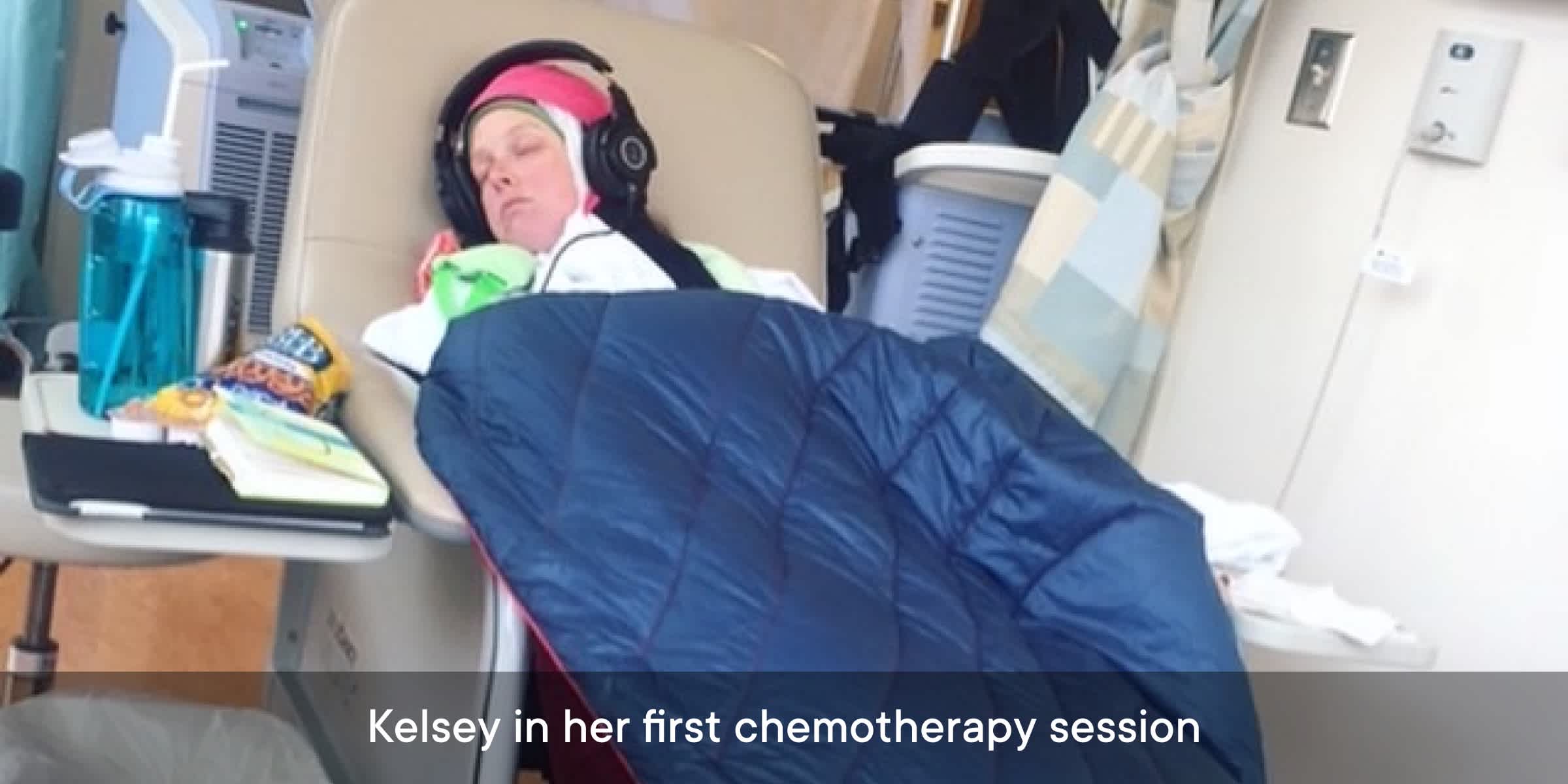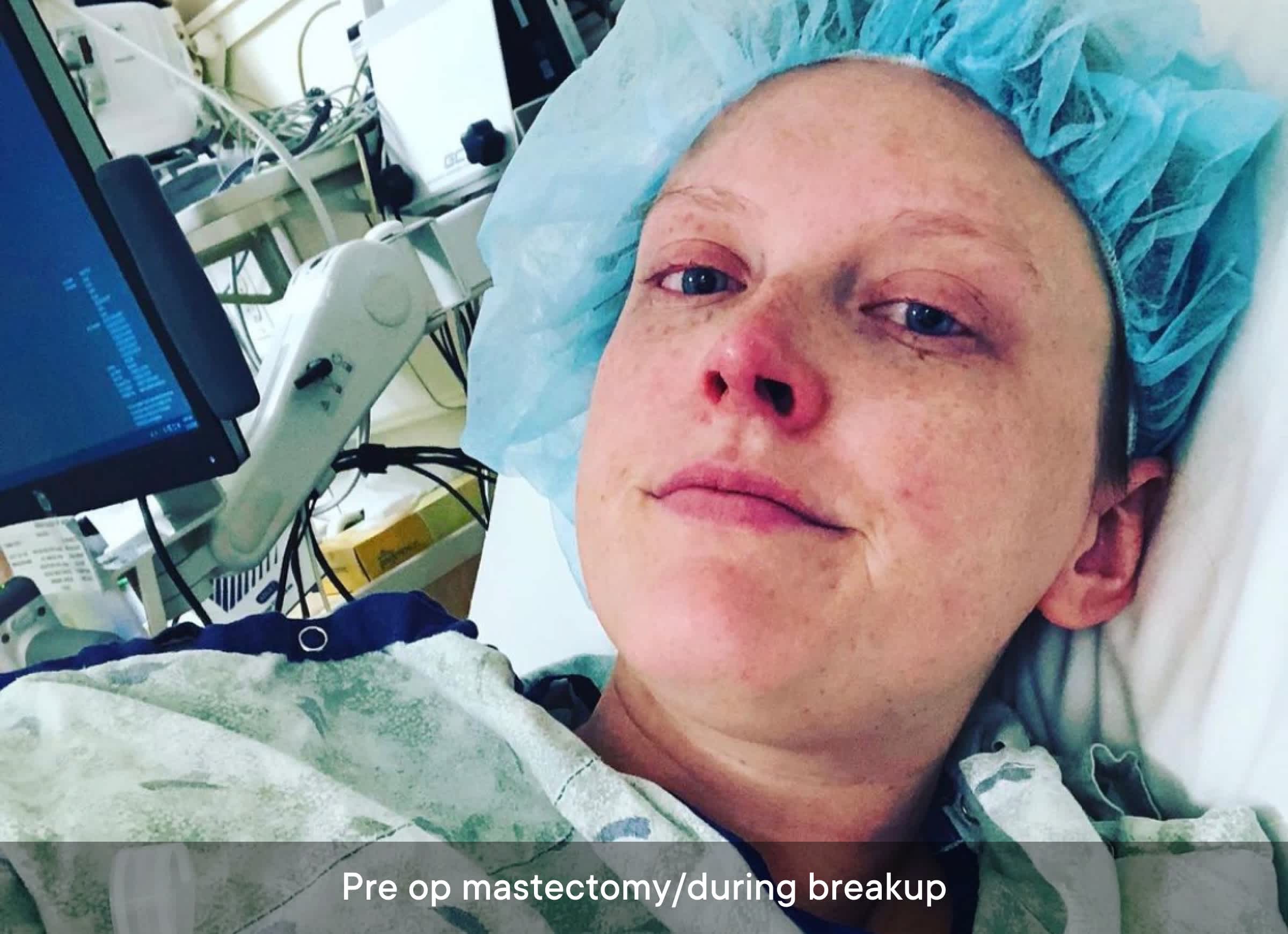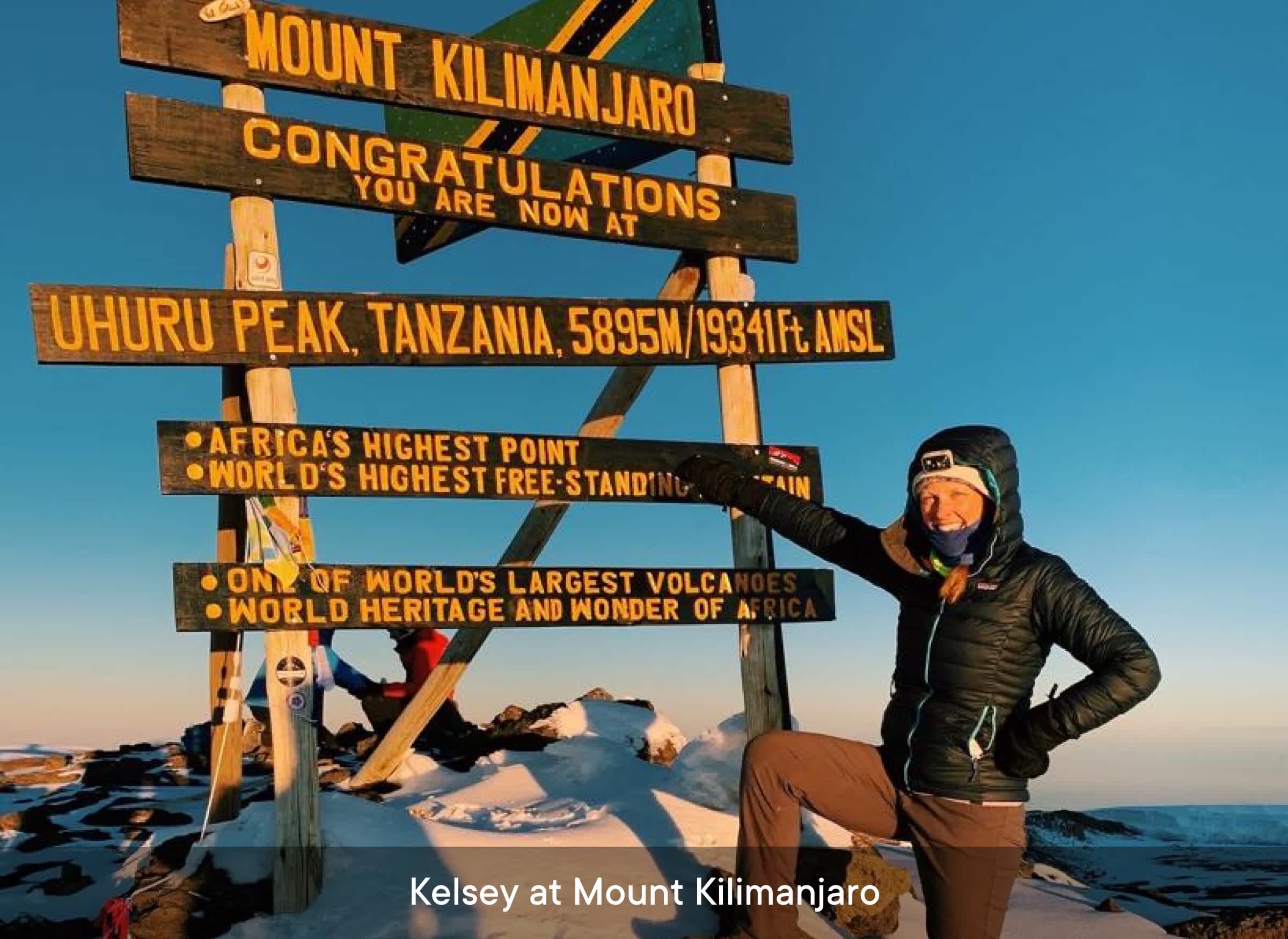Images provided by Kelsey Renning; Art by Emma Günther.
Part 2: I was diagnosed with breast cancer at 28
Kelsey's chemotherapy started on Halloween and ended on Valentine's Day.

October was Breast Cancer Awareness Month in the United States. I sat down with my friend, Kelsey Renning for an intimate and honest conversation about her journey with an early breast cancer diagnosis and fertility preservation options when the odds were stacked against her. This is part two of two. Read part one here.
Shortly after completing the egg retrieval and freezing process, it was time for Kelsey to start chemotherapy. “I took disability leave from my job as a nurse, only to only walk back into the hospital a few days later as a cancer patient.”

“The initial rounds of treatment were rough. I was exhausted, weak, nauseous, and physically wrecked. It was like having the worst possible flu you can imagine.” The chemotherapy plan was aggressive given Kelsey’s age, and involved an infusion of drugs every three weeks for a duration of four and a half months.
Knowing that hair loss is an often overwhelming side effect of chemotherapy, she opted for “cold cap therapy”–a silicon cap that freezes hair follicles during treatment to prevent hair loss. This option is something not typically covered by insurance (6), but it has a high success rate, helping patients maintain at least 50% of their hair (7).
“I didn’t want to be seen by everyone as a cancer patient. This was really important to me.”
While the cold cap helped preserve most of the hair on her head, she still lost all the other hair on her body including her eyelashes and eyebrows. The chemo wrecked her appetite and she gained weight from the steroids and inactivity. She could barely walk up a flight of stairs without getting winded, and her skin was so thin that she bled easily. Her period stopped. “I remember looking at myself in the mirror and thinking this just doesn’t even look like me anymore.”
Something to look forward to
Kelsey tried to plan activities on her good days, and gave into the waves of fatigue and nausea on her bad days–all while continuing a full-time masters degree online.
It was on one of these ‘good days’ that her boyfriend planned a special hike and halfway through, got down on one knee and proposed. “Wedding planning was a really fun and uplifting way to spend the hard days,” remembers Kelsey, adding that it gave her something to look forward to.
Her chemotherapy started on Halloween and ended on Valentine's Day–something she sees as symbolic of the fear she started therapy with and the self-love and hope she found at the end.
Breaking point
With the completion of chemo, a double mastectomy (surgery to remove breast tissue and nearby lymph nodes) was scheduled as the final step in Kelsey’s treatment. The genetic testing of her tumor biopsy identified Li-Fraumeni syndrome (LFS), an inherited predisposition to tumor growth, putting her at very high risk for several types of cancer, including breast cancer–a frightening thought for her future children.
“The night before my double mastectomy, when I was at my most vulnerable and confronting my femininity, sexuality, and future as a breast cancer survivor; my fiancé broke up with me.
“I had asked him to help me pack my hospital bag and he just said ‘I can’t do this anymore’. And that was that. The one person who had been by my side the entire time was rejecting me at the moment I needed him the most.”
His response to her situation was not unique. A woman with cancer is six times more likely to be abandoned by a male partner or spouse within six months of being diagnosed (8). “He ran this whole marathon with me and then didn’t get to cross the finish line holding my hand,” says Kelsey.

Blindsided, Kelsey called her parents who sprung into action to stand by her side as she went in for surgery the next morning. The surgery was successful and the prognosis was promising. They were able to remove all the breast tissue reducing the risk of recurrence by over 95%. The cancer had not spread to her lymph nodes, so radiation wasn’t needed.
Immunotherapy infusions for several more months completed her year-long therapy. Because her cancer was identified as hormone receptor-positive, Tamoxifen (a medication to block estrogen receptors in breast tissue) was started (9). At the recommendation of her doctor, Kelsey planned to take the medication for five years, after which she’d think about pregnancy when (and if) she felt ready.
“I had survived cancer and had a new appreciation for life. At first, I felt really different from others and felt that people didn’t really know how to treat me, almost like they were scared to bring up something sensitive or that they would say the wrong thing. I was just like, ‘I’m the same me, treat me just the same!’”
But some parts of her have changed: “Post-treatment forced me to reconsider what path I did and didn’t want to go down, to listen to my instinct and make decisions that felt fulfilling.”
In the middle of the COVID-19 pandemic Kelsey was chosen for a global health fellowship teaching nursing skills to students in Malawi, and she seized the opportunity for a fresh start. A couple of years later, she met her current partner, a teacher with similar interests in travel, adventure, and a desire for parenthood.

A plan for the future
“I am now more than four years cancer-free at 33 years old, and coming to the end of my hormone-suppressing medication. My boyfriend and I are starting to explore the idea of starting a family in the next couple of years.”
Her seven eggs (frozen across the world in the US) are an option, but the monthly rent to keep them safely stored keeps going up, so Kelsey has met with a genetic counselor to discuss options and clarify a plan.
“I don’t want to pass LFS (predisposition to cancer, particularly childhood cancers) to my children. If I decide to use my stored eggs to try and become pregnant, they can perform genetic testing on the embryos before implantation.” There is a one-in-two chance that Kelsey can pass this gene on to her children, and there’s no guarantee that all seven of her eggs will be fertilized or develop into an embryo that can be biopsied to be tested (10).
If and when they decide to start trying to become pregnant, Kelsey and her partner don’t initially plan to use her stored eggs. This is partly due to living across the world, and also because using them would involve temporarily moving back to the United States to undergo in vitro fertilization IVF).
Knowing your body matters
If surviving breast cancer has taught Kelsey anything about life, it’s learning to roll with the unknowns, take each step as it comes, and have faith in the future.
“For now I’ll just keep paying to store my eggs until we have our children. Knowing we have a backup plan is comforting.”
Kelsey’s advice is simple: “You can’t spend your life worrying. You can’t change what happens and you just don’t have control over it. It shouldn’t take a life-threatening experience to have this perspective. As time passes, cancer becomes a memory of the past. Although in a lot of ways it has shaped my perspective on life, I don't spend a lot of time thinking about it. I don't let the experience define or limit me. I generally don't live in fear of the future. Oh, and get to know your body!”
She still routinely tracks her period, and PMS symptoms, and remains very in tune with her body. Her awareness of her breast changes might just have saved her life.
For more information and a quick guide on breast health, check out this article.

